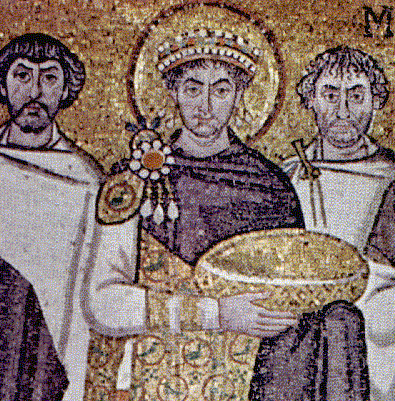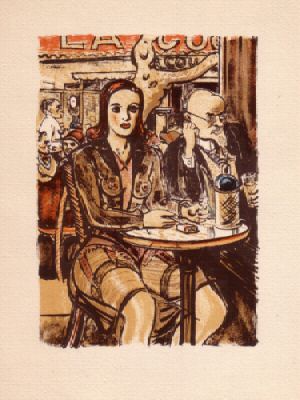It's Confession Time
I'm tired of living the lie: I like Tom Clancy.
Though they are squirreled away in a paper bag in my closet (seriously, I'm that embarrassed, and now I'm embarrassed that I'm that embarrassed) I am the owner of dog-eared copies of The Hunt for Red October, The Sum of All Fears and Patriot Games. I've seen all of the movies that have been made of Tom Clancy's books. The Hunt for Red October starring Sean Connery and Alec Baldwin is one of my favorite movies. I have played Splinter Cell on the Xbox more than is okay.
I'm not embarrassed because they aren't "literary" fiction (the Clive Barker and H.P. Lovecraft is on the shelf for all to see--and I think Graham Greene's spy novels are every bit as good as his more serious work, even if he didn't), I'm embarrassed because they are hack-work. But, by God in heaven, they are brilliant hack-work.
I should also admit that I find the ham fisted Cold War hawkishness of the early Jack Ryan stuff silly, but its just so compellingly written. Seriously, many a "literary" novelist could learn a thing or two from the pacing and characterization in Tom Clancy's novels. I think one of the things that makes Michael Chabon such a great novelist is his internalization of the pacing and flow and characterization of "genre" fiction.
Tom Clancy throws in enough verisimilitude to really hook you. He knows enough about how these nuclear incidents and Cold War stand-offs would actually work that the shear plausibility of his scenarios is enthralling. And the message underlying the plots of his books is actually quite admirable. Clancy's books speak to a boundless sort of optimism that good works and good policy will actually achieve positive ends. That smart people working hard can make the world a better place. He isn't naive, he understands how complex this all is. Indeed, in the aftermath of 9/11 he was a sought after commentator, the events of that Tuesday were exactly the sort of complex tactical scenario that Clancy has made a fortune accurately gaming out in terms understandable to millions of readers. And what did he say. He said the terrorists have material grievances, the actions of the Great Powers in the region had caused a certain amount of blow back, the NSA and CIA had been on Bin Laden for years and needed the resources to bring him in, that Islam itself has nothing to do with it (except in as much as it's a plausible excuse) and that nothing about the religion dictates tyranny and terrorism, but a lot about the deprivation of the Third World does.
And then you realize that Clancy might be a hack-writer (he now licenses his name out to ghost writers in the strongest of paper back traditions), but he's a smart one. He's got his craft and he's the best at it. If you can't get behind a compelling thriller (it doesn't have to be Tom Clancy) because it isn't written by a "good" writer, then you, my friend, have a problem.
Also, Tom Clancy is a homeboy. He's from Balmer (educated at Loyola along with Mark Bowden and Jimmy McNulty, there's something in the water in North Baltimore) and he puts his heroes there (though The Sum of All Fears is set in Denver in the book and I always like that) and his heroes are always Irish Catholic boys from the neighborhood. And I have respect for homeboys.
I like paperback writers, and I like genre fiction. I don't think that they're better than the literary writers and I don't think that the literary writers are better than the genre folks. I just wish they'd learn from each other. I think Orson Scott Card is shit, but that Arthur C. Clarke and Ray Bradbury should be celebrated as the great early postmodernist writers they were. Guys like Aldous Huxley and Thomas Pynchon and Kurt Vonnegut are the model to look to here. J.R.R. Tolkein knew more about language and epic form than James Joyce could even hope to have learned. And Raymond Chandler wrote a novel that bordered on the sort of experimental plotting and perspective and moral/philosophical dilemmas that Dostoevsky and Sartre only saw from a distance. Aronofsky and Gondry are arthouse filmmakers and screenwriters that could only hope to write a Neil Gaiman or an Alan Moore comic book.
So I salute genre. And I like Tom Clancy.
Though they are squirreled away in a paper bag in my closet (seriously, I'm that embarrassed, and now I'm embarrassed that I'm that embarrassed) I am the owner of dog-eared copies of The Hunt for Red October, The Sum of All Fears and Patriot Games. I've seen all of the movies that have been made of Tom Clancy's books. The Hunt for Red October starring Sean Connery and Alec Baldwin is one of my favorite movies. I have played Splinter Cell on the Xbox more than is okay.
I'm not embarrassed because they aren't "literary" fiction (the Clive Barker and H.P. Lovecraft is on the shelf for all to see--and I think Graham Greene's spy novels are every bit as good as his more serious work, even if he didn't), I'm embarrassed because they are hack-work. But, by God in heaven, they are brilliant hack-work.
I should also admit that I find the ham fisted Cold War hawkishness of the early Jack Ryan stuff silly, but its just so compellingly written. Seriously, many a "literary" novelist could learn a thing or two from the pacing and characterization in Tom Clancy's novels. I think one of the things that makes Michael Chabon such a great novelist is his internalization of the pacing and flow and characterization of "genre" fiction.
Tom Clancy throws in enough verisimilitude to really hook you. He knows enough about how these nuclear incidents and Cold War stand-offs would actually work that the shear plausibility of his scenarios is enthralling. And the message underlying the plots of his books is actually quite admirable. Clancy's books speak to a boundless sort of optimism that good works and good policy will actually achieve positive ends. That smart people working hard can make the world a better place. He isn't naive, he understands how complex this all is. Indeed, in the aftermath of 9/11 he was a sought after commentator, the events of that Tuesday were exactly the sort of complex tactical scenario that Clancy has made a fortune accurately gaming out in terms understandable to millions of readers. And what did he say. He said the terrorists have material grievances, the actions of the Great Powers in the region had caused a certain amount of blow back, the NSA and CIA had been on Bin Laden for years and needed the resources to bring him in, that Islam itself has nothing to do with it (except in as much as it's a plausible excuse) and that nothing about the religion dictates tyranny and terrorism, but a lot about the deprivation of the Third World does.
And then you realize that Clancy might be a hack-writer (he now licenses his name out to ghost writers in the strongest of paper back traditions), but he's a smart one. He's got his craft and he's the best at it. If you can't get behind a compelling thriller (it doesn't have to be Tom Clancy) because it isn't written by a "good" writer, then you, my friend, have a problem.
Also, Tom Clancy is a homeboy. He's from Balmer (educated at Loyola along with Mark Bowden and Jimmy McNulty, there's something in the water in North Baltimore) and he puts his heroes there (though The Sum of All Fears is set in Denver in the book and I always like that) and his heroes are always Irish Catholic boys from the neighborhood. And I have respect for homeboys.
I like paperback writers, and I like genre fiction. I don't think that they're better than the literary writers and I don't think that the literary writers are better than the genre folks. I just wish they'd learn from each other. I think Orson Scott Card is shit, but that Arthur C. Clarke and Ray Bradbury should be celebrated as the great early postmodernist writers they were. Guys like Aldous Huxley and Thomas Pynchon and Kurt Vonnegut are the model to look to here. J.R.R. Tolkein knew more about language and epic form than James Joyce could even hope to have learned. And Raymond Chandler wrote a novel that bordered on the sort of experimental plotting and perspective and moral/philosophical dilemmas that Dostoevsky and Sartre only saw from a distance. Aronofsky and Gondry are arthouse filmmakers and screenwriters that could only hope to write a Neil Gaiman or an Alan Moore comic book.
So I salute genre. And I like Tom Clancy.
Labels: literature






0 Comments:
Post a Comment
<< Home